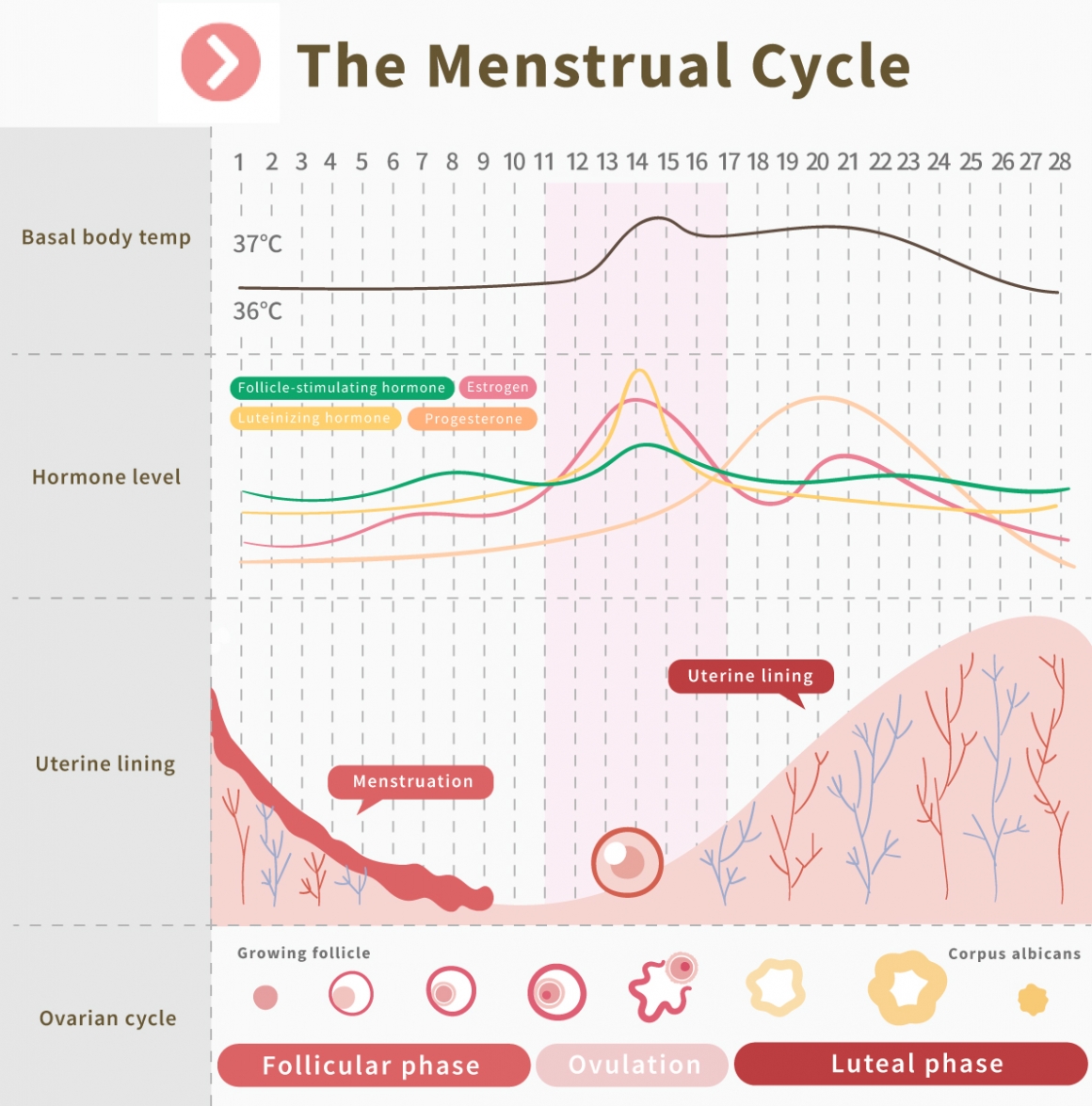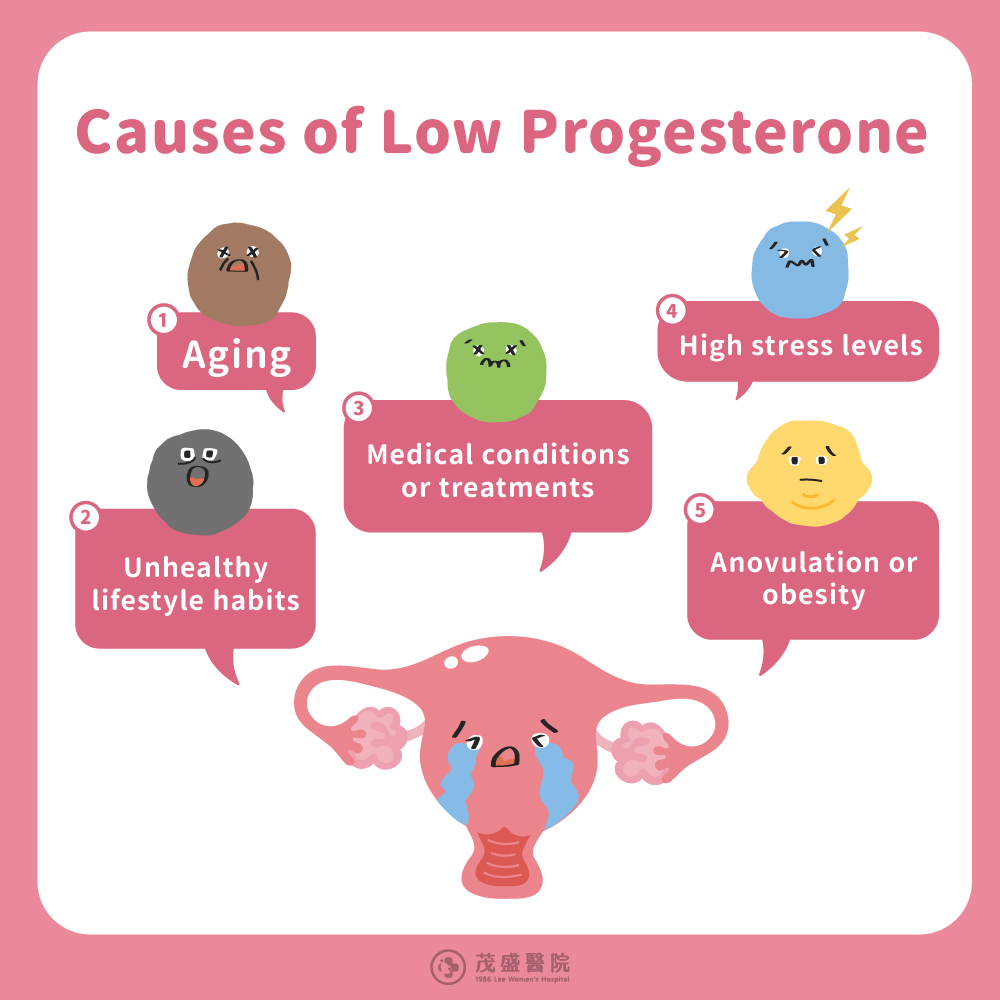Knowledge Sharing
2024.12.12
What Is the Role of Progesterone, and What Are the Effects of Low Progesterone
Progesterone plays a critical role in pregnancy, making it essential for women trying to conceive to understand how its deficiency can affect their chances of a successful pregnancy.
In pregnancy, progesterone serves as a stabilizing factor by inhibiting uterine contractions, thereby preventing miscarriage and acting as a tocolytic agent. It also enhances blood flow to the endometrium, stimulates glandular secretion, and increases the availability of glycogen, amino acids, and fluids necessary to sustain pregnancy.
During the luteal phase of the menstrual cycle, progesterone secretion peaks, promoting the thickening and vascularization of the uterine lining to create a supportive environment for potential implantation.
If fertilization and implantation occur, the embryo releases human chorionic gonadotropin (hCG), which stimulates the corpus luteum to continue producing progesterone. This ensures that the endometrial lining remains stable to support the growing embryo.
Progesterone levels can be measured via blood tests. Before ovulation, levels are typically <1 ng/mL, while post-ovulation levels rise above 15 ng/mL.

Progesterone: An Overview
- What is progesterone?
- What are the consequences of low progesterone?
- Potential causes of low progesterone
- The impact of low progesterone on different groups
What is progesterone?
Progesterone (P4), also known as the pregnancy hormone, is a female hormone that fluctuates with the menstrual cycle. During the second half of the menstrual cycle, known as the luteal phase, progesterone levels increase to prepare the uterine lining for embryo implantation. Once implantation occurs, progesterone helps maintain the pregnancy and tocolysis.In pregnancy, progesterone serves as a stabilizing factor by inhibiting uterine contractions, thereby preventing miscarriage and acting as a tocolytic agent. It also enhances blood flow to the endometrium, stimulates glandular secretion, and increases the availability of glycogen, amino acids, and fluids necessary to sustain pregnancy.
Progesterone in the Menstrual Cycle

During the luteal phase of the menstrual cycle, progesterone secretion peaks, promoting the thickening and vascularization of the uterine lining to create a supportive environment for potential implantation.
If fertilization and implantation occur, the embryo releases human chorionic gonadotropin (hCG), which stimulates the corpus luteum to continue producing progesterone. This ensures that the endometrial lining remains stable to support the growing embryo.
Progesterone levels can be measured via blood tests. Before ovulation, levels are typically <1 ng/mL, while post-ovulation levels rise above 15 ng/mL.
What are the consequences of low progesterone
If a woman has low progesterone, it can affect menstrual regularity and blood flow, leading to discomfort during menstruation, mood swings, sleep disturbances, and other symptoms of premenstrual syndrome (PMS). During pregnancy, insufficient progesterone can cause instability in early pregnancy and increase the risk of miscarriage.
Consequences of Low Progesterone
| Menstrual Cycle | Pregnancy |
| Irregular periods or missed periods Abnormal menstrual bleeding Premenstrual spotting Premenstrual syndrome (PMS) Other symptoms such as mood swings, headaches, bloating, and breast tenderness |
Affecting the implantation of the embryo Vaginal bleeding during pregnancy Increased risk of miscarriage |
Potential causes of low progesterone
- Aging: Ovarian function declines with age, reducing progesterone production.
- Unhealthy lifestyle habits: Smoking, alcohol consumption, and insufficient sleep disrupt hormone balance.
- Medical conditions or treatments: Certain diseases or chemotherapy may impair endocrine function.
- High stress levels: Stress can lead to hormonal imbalances, affecting progesterone levels.
- Anovulation or obesity: Lack of ovulation or excessive weight can disrupt endocrine function.

The impact of low progesterone on different groups
| Group | Potential Effects of Low Progesterone |
| Non-pregnant women | Missed periods, irregular menstrual cycles, abnormal bleeding, premenstrual spotting, and symptoms of premenstrual syndrome (PMS), such as headaches, bloating, edema, and breast tenderness. |
| Women trying to conceive | Endometrial dysfunction and affecting the implantation of the embryo. |
| Pregnant women | Risk of vaginal bleeding and miscarriage. |
| Postmenopausal women | Ovarian function decline leads to reduced secretion of estrogen and progesterone, causing menopausal symptoms such as hot flashes, palpitations, mood changes, and insomnia. |




